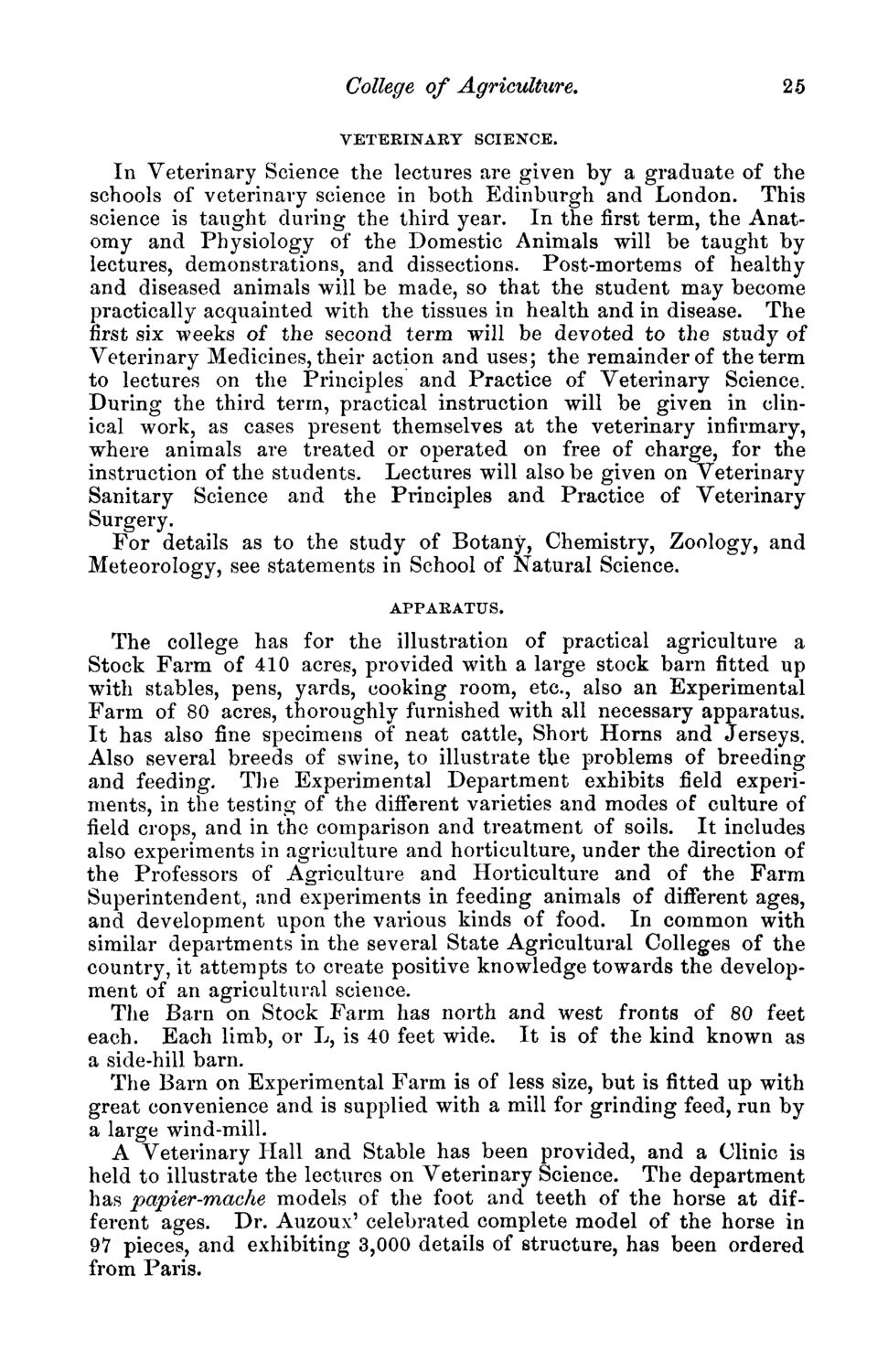| |
| |
Caption: Course Catalog - 1876-1877
This is a reduced-resolution page image for fast online browsing.

EXTRACTED TEXT FROM PAGE:
College of Agriculture. VETERINARY SCIENCE. 25 In Veterinary Science the lectures are given by a graduate of the schools of veterinary science in both Edinburgh and London. This science is taught during the third year. In the first term, the Anatomy and Physiology of the Domestic Animals will be taught by lectures, demonstrations, and dissections. Post-mortems of healthy and diseased animals will be made, so that the student may become practically acquainted with the tissues in health and in disease. The first six weeks of the second term will be devoted to the study of Veterinary Medicines, their action and uses; the remainder of the term to lectures on the Principles and Practice of Veterinary Science. During the third term, practical instruction will be given in clinical work, as cases present themselves at the veterinary infirmary, where animals are treated or operated on free of charge, for the instruction of the students. Lectures will also be given on Veterinary Sanitary Science and the Principles and Practice of Veterinary Surgery. For details as to the study of Botany, Chemistry, Zoology, and Meteorology, see statements in School of Natural Science. APPARATUS. The college has for the illustration of practical agriculture a Stock Farm of 410 acres, provided with a large stock barn fitted up with stables, pens, yards, cooking room, etc., also an Experimental Farm of 80 acres, thoroughly furnished with all necessary apparatus. It has also fine specimens of neat cattle, Short Horns and Jerseys. Also several breeds of swine, to illustrate the problems of breeding and feeding. The Experimental Department exhibits field experiments, in the testing of the different varieties and modes of culture of field crops, and in the comparison and treatment of soils. It includes also experiments in agriculture and horticulture, under the direction of the Professors of Agriculture and Horticulture and of the Farm Superintendent, and experiments in feeding animals of different ages, and development upon the various kinds of food. In common with similar departments in the several State Agricultural Colleges of the country, it attempts to create positive knowledge towards the development of an agricultural science. The Barn on Stock Farm has north and west fronts of 80 feet each. Each limb, or L, is 40 feet wide. It is of the kind known as a side-hill barn. The Barn on Experimental Farm is of less size, but is fitted up with great convenience and is supplied with a mill for grinding feed, run by a large wind-mill. A Veterinary Hall and Stable has been provided, and a Clinic is held to illustrate the lectures on Veterinary Science. The department has papier-mache models of the foot and teeth of the horse at different ages. Dr. Auzoux' celebrated complete model of the horse in 97 pieces, and exhibiting 3,000 details of structure, has been ordered from Paris.
| |